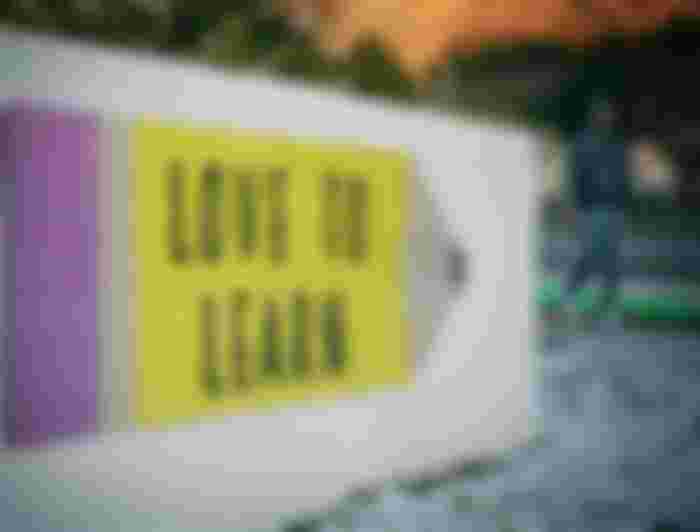I Did Not Learn English In School

Introduction
You may be wondering who I am to write a book about learning English. What qualifies me to be an author? Do I have enough expertise? Do I have enough certifications, degrees, and PhDs?
Please hold your horses. A good deal about me will come out through the stories in the following pages, but here are a few details that may be helpful to know now.
I started teaching English as a Foreign/Second Language (EFL/ESL) in 2008. I've been an English teacher to such nationalities as Costa Ricans, South Koreans, Vietnamese, Japanese, and Chinese.
I have taught all age groups from kids as young as 3 years old to high school students, college hopefuls, and adults as old as 65 years old.
I've been an English tutor to people who are well-established professionals in their home country. Some of them work as doctors, lawyers, engineers, scientists, and college professors.
These learners whose English proficiency range from zero to advanced, enroll in online English classes for a number of reasons.
But among all these known reasons, there's one I believe that outshines the rest: ESL students want to improve their speaking and writing skills to meet work demands and pursue better job positions.
As of this writing, the British Council forecasts that in 2020 there will be 2 billion English- language speakers or learners worldwide. This is not at all surprising to me.
English is considered the language of opportunity. It is the most dominant language of travel and business. It also allows Hollywood movies to reach an unlimited viewing audience.
The vast majority of latest discoveries in science and technology are basically published in English. English being amazingly everywhere is undoubtedly the world's international language.
Over the years, I have gathered incredible amount of insights as my students attempt and struggle to learn this lingua franca. Countless times, I've been asked, "Teacher Kenjie, how to learn English fast?"
Every time a student begged me for answers, my brain would scream, "I HAVE NO F***ING IDEA." Admittedly, I had difficulty answering it myself. I found it so hard to sum up my ideas in a sentence or two.
It's just one but a kind of question that requires tons of explanations.
Before long, I saw myself in front of my second-hand Lenovo laptop, ideas flowing and fingers flying as I was creating this book. Written by an author you have never heard of, I would like to offer my viewpoints on this million-dollar question:
HOW TO LEARN ENGLISH FAST?
Each student faces a different challenge. It may have to do with either one or all of the following:
Vocabulary
Grammar
Pronunciation
There are countless books and blogs out there that promise to help you improve the above areas. Some of those are actually fabulous, while others are practically boring.
Do not misunderstand me. I don't claim being an authority on the subject of grammar, vocabulary, and pronunciation.
I am not going to be able to compete with the reference books written by language professionals (linguists, grammarians, and editors) and I don't intend to. I am just a regular guy from a remote Philippine barangay.
But why should you read my book right now? What makes it worthwhile out of the thousands of others on the market? What can I tell you that hasn't been said? What else can I say that might impact your life?
There are two reasons I can give: First, I have a unique story to tell. It's a true story that will inspire you, empower you, and help you jumpstart your quest to master English. And second, my book contains actual study methods I have used to get better at English. No B.S., No nonsense.
English is not my native language. I started to become interested in it only in the summer of 1998 right after I finished high school. I had never paid a single attention to it from the first day I became a Grade 1 pupil up until the day I left high school.
You have no idea how hard learning English was for me. Its basic grammatical rules had been for me—a mystery. Just like you, I struggled too. No one was there to coach me. It had been all me. Just me.
So, having walked in the shoes of someone learning English as a second language, I can tell you: IT'S NOT A WALK IN THE PARK. That's why it comes as no surprise to me that you don't get it right, right away.
What's surprising, however, is most students seem to think that there are no challenges involved when acquiring a second language. I understand how hard it is to get started.
Learning English, in my case, started as a few days of struggle and then eventually turned into painful months. In fact, the difficulties and embarrassments I had gone through inevitably caused me to doubt myself.
But who would have thought I would end up being an English teacher? Who would have thought I would become a self-published independent author?
I used to suck at anything English: vocabulary, pronunciation, and grammar. I had trouble understanding words. I made grammar mistakes that made me look stupid. I messed up with my pronunciation big time.
These mistakes made me a laughing stock, and yet I didn't make it a big deal. Yes, I had been mocked by my friends. But that never stopped me. I picked myself up and kept going until after numerous failures and embarrassing attempts, I got better.
Let me reassure you. It doesn't matter who you are, where you are, and how old you are. I'm convinced. If you can stick with your goal for long enough doing the right thing, you'll get there eventually.
This book details everything I have done to learn English. Take note. It isn't like one of those get-rich-quick books that promise great prosperity with little work.
My book will show you pieces of practical advice that have helped me get to where I am today. These are pieces of advice that you won't probably like because they demand you push yourself harder than anyone has ever asked you to push yourself before.
But they are the kinds of unpleasant advice that will help you realize that you haven't been trying as hard as you think.
You live in an era of information overload. Today, the possibilities to improve your English are virtually unlimited. Back in the days when I had zero English, I found myself in a role where I needed to be creative.
I don't want you to stick to primitive learning methods that don't work. I've seen so many students using a single method only to end up either being mute or speaking like a robot.
Unlike what most of you enjoy today, I started out with nothing. I had little to no access to better resources. I had no access to the Internet. I had no smartphone. (I had thought I wasn't even smart at all.)
There were no language-learning apps. I couldn't afford to hire an English tutor. I couldn't even afford a pocket dictionary. There was only me and my lofty ambition to learn English. I had gone through a lot of struggles, tons of trials and errors until I found out where to focus my efforts.
You can choose to take the difficult path I took or read this book which is a one-hour online English class worth. What are you waiting for? Whether your level is either beginner, intermediate, or advanced, these failsafe methods are what you're looking for. Let's go spill these secrets.

Part I - Vocabulary
I learned my first English word when I was in Grade 1. And that word was, "Hi!" It's the second expression I could speak with confidence next to: Thank you.
None of my classmates in grade school conversed in English. I mean, no one had ever used the language in our daily conversations. I know this fact very well. These were the same kids I had played games with in school. The only chance we could speak in English was when the teacher wanted us to:
Open an English textbook and read something from it.
Sing a song with English lyrics.
Read a sentence on the board written in English.
Recite an English poem.
Count numbers 1 to 10.
Stand up and give our answers in English.
The last one would scare the shit out of us. Even the mere mention of the word English signaled terror. Every time our teacher called out names, we would cower behind our desks.
Back then, Good Morning, Good Afternoon, and Goodbye were the only greetings we could abuse.
But almost always we could use them only when the teachers stepped inside and out of the room, when we bumped into them outside the classroom, and when the principal or any other top school figure paid our class a surprise visit.
Strangely enough, we would say these greetings in a very unnatural way like a tape played in slow motion. And it sounds like you're going down the hill on a sleigh and up again:
"Goooodbyeeee, Mr. Suaaareeeeez!"
Class dismissed, and my close friends and I would then race out of the room. Goodbye had always been the last English word of the day—every day until the school semester ended.
No one has encouraged me to speak English. Not even my parents. They have been busy people with other priorities.
At home, we communicate with our dialect. I admit, you'll hear some occasional English.
It is not unusual. In the Philippines, we normally incorporate a couple of English words into our own language. We do this if we can't express our thoughts in our native tongue.
The only downside is words are spoken in a heavy accent you can hardly recognize them as English!
But then, who in a small village like ours, dares to speak English with either British, Irish or North American accent anyway?
If I do, chances are my neighbors will never forgive me. In this remote part of the world, talking to somebody in English with or without fancy accent is abnormal.

Know Your Why
I had understood nothing about English until I started to care about it. And I only did in 1998 after graduating from high school.
Leaving high school, it suddenly became apparent that I wasn't going to be scouted for fame. The day finally came for me to face reality.
My father had confessed he was not going to send me to college. We simply didn't have the money. He told me he would take me with him to work as a construction laborer.
Not only did I freeze in absolute shock, hearing his words also set off a mind grenade that rocked me deep down to the core.
I have nothing against the construction industry. I just can't imagine myself tearing down buildings and cleaning up rubble and debris for the rest of my life.
The nature of construction work is very physically demanding. I have seen people looking helpless, hopeless, and exhausted working on a jobsite under unbearably hot weather conditions.
I just can't picture myself living happy in this situation. I can't picture myself being forced to work long hours with little to no choice to go lay in the shade for a while. I can't picture the sight of me being long dead of poverty and overwork.
I knew right off the bat I would never get far with this line of work. My father has devoted himself completely to his craft (he paints buildings and houses) and yet we still have a hard time making ends meet. Unfortunately, we own no assets, only debts. I decided right on the spot not to follow his path.
I had made a pact with myself that I would dare go to great lengths to get a better future. I naively thought the only way I could get a better career was to be good at all academic subjects. I figured I would get a scholarship and then enter college.
Without second thought, I pushed myself to learn everything I possibly could about Science, Mathematics, History, Economics, and all other major subjects.
And then it dawned on me: The best books on these subjects are all written in English!
I had known too well that my English had been horrible on all counts. My vocabulary was far below limited. My grammar was hopeless. My pronunciation sounded terrible. For example, I used to pronounce tomb like bomb. Can you believe it?
Yes, I had heard my teacher speak English. I had taken numerous tests. But for some reason I had absorbed nothing, not a thing since first grade.
My biggest regret regarding my elementary and high school education was taking all class subjects for granted. I went out fishing with a neighbor one day. And I saw this lonely little boat barely moving on the horizon. This tiny sight got me thinking, "Where did I go wrong?"
I was 16 and fresh out of high school. I had nothing else to do but either fished and finished the chores or ran errands for Mama. I knew I had no one to blame. But I knew I had to make that first step. And I knew it was now or never. I went home that day with a single purpose in mind—conquer English.
Think of yourself as a one-man army.
— Donald Trump

